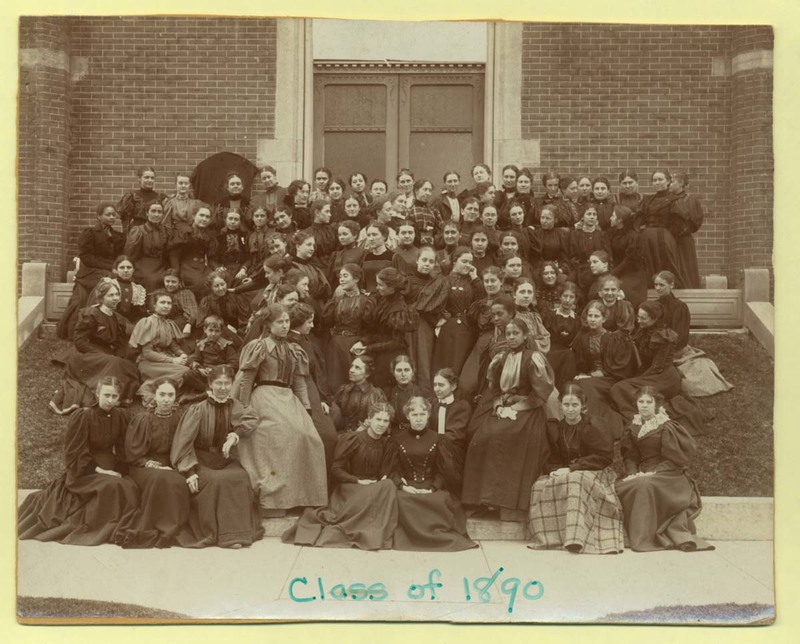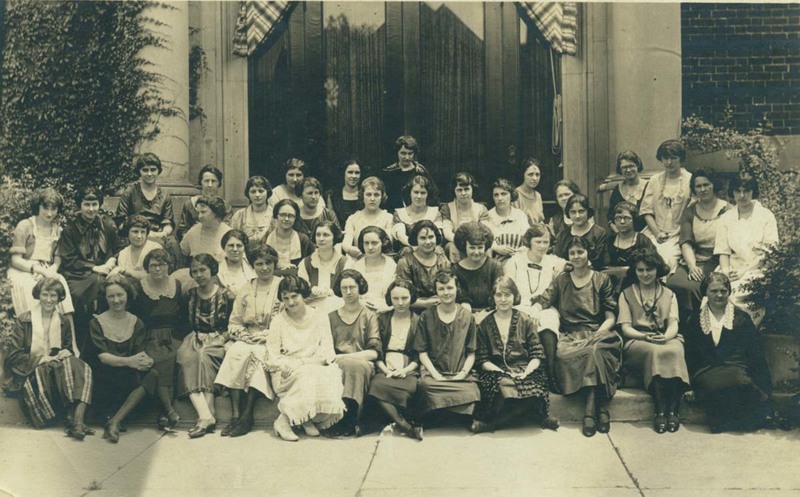Professionalizing Teaching
The education all teachers received lagged behind many other fields of professional study by the 1920s. While programs for teachers were expanding and more state and national teaching standards were coming into law, many normal schools—institutions focusing on the training of teachers in curriculum and pedagogy that were oftentimes separate from universities—did not offer graduate courses or continuing education beyond an initial two-year teaching certificate. As well, teaching was not seen as a professional career, and many normal schools did not confer or even offer four-year baccalaureate degrees.
The 1920 Carnegie Foundation study The Professional Preparation of Teachers for American Public Schools was pivotal in professionalizing the field of teaching, which lead to many normal schools merging with or expanding into larger academic universities. In Indiana the Indianapolis Public Schools’ Gregg Scholarship provided teachers money for advanced professional training.
Sigma Gamma Rho recognized the insufficiency in the education teachers received and desired to professionalize teaching as a field. These were primary reasons for the Sorority’s founding. In addition, as many Greek letter professional organizations were segregated, the Founders specifically desired to provide professional support to Black women teachers.
In the first issue of The Aurora published in 1928, the editors described the Sorority’s purpose as supporting teachers and students:
Studies made a few years ago under the auspices of the Carnegie Foundation brought out the fact . . . that schools and colleges the country over are training in only about fifteen per cent of the essentials of the job. The remaining eighty-five per cent of the requisites of success are left practically untouched. The facts brought out in this and in similar investigations make the glaring gap between training and performance on the job quite apparent.
Education is a failure if it cannot be used to solve the problems that confront us in daily life. This is the Sigma Gamma Rho conception about education; and our main purpose as an organization is to promote and establish this conception in our school systems.
It is our firm conviction that the purpose of education is not merely to mold character or to train students so that when they leave school, they shall have sufficient moral, physical and mental strength to cope with the problems of daily life; but the purpose is rather to equip students to understand and how to solve these problems.… It is our firm belief that education can be made more useful than it actually is today, that it can directly fit students to solve the actual problems met in everyday life.
Teachers College of Indianapolis
The Teachers College of Indianapolis (TCI) operated from 1882 to 1930 when it merged with Butler University and became the College of Education. The school was open to all including people of color and was originally founded by the kindergarten and education advocate Eliza Blaker. Blaker impacted children’s lives through her work to establish kindergartens in underserved Indianapolis communities and her efforts to improve teacher education. Many educators benefited from TCI, including the Sigma Gamma Rho Founder Dorothy Hanley who attended the school from 1928 to 1929. The Eliza Blaker Teachers College of Indianapolis Collection in Special Collections at Butler University contains personal papers from Eliza Blaker in addition to TCI records.

